Health and Safety Courses

Fee Trial
Register for your account today and enjoy the first module of each of our courses for free
Need more info.
Contact us for more information or help with your training requirements.
Returning to work?
Get all your staff health and safety qualifications and skills in line with legislation.

Video Based Training
One on one tutor led videos is an integral part of our training delivery model. We found that our students relate better to videos than to other forms of online learning.
Our online video based training format offers a high-impact, high-engagement learning environment wich leads to a high recall rate.
All our training videos are available anywhere, anytime and on any device with an internet connection. 24/7

Abrasive Wheels
£35.00 / Candidate
Course Duration: 100 Min
Modules: 11
IIRSM & CPD
More Details
This course is aimed at anyone who uses abrasive wheels or employs people who use abrasive wheels as part of their work.
There are a wide range of tools and processes that use abrasive wheels and ensuring these are used correctly and safely is of paramount importance. Applications range from hand grinding to disc cutting. They can be used at all stages of a work process, for making preliminary cuts and scores in materials, or for fine polishing and finishing. Different wheels will have different properties and characteristics suitable for particular tasks. They also have different weaknesses and can pose different risks and hazards in handling and use. For this reason, it is important that you always select the right abrasive wheel for the job and use it with the right machinery.
This course covers the anatomy of an abrasive wheel, the dangers associated with their use, Storage, and handling and much more.
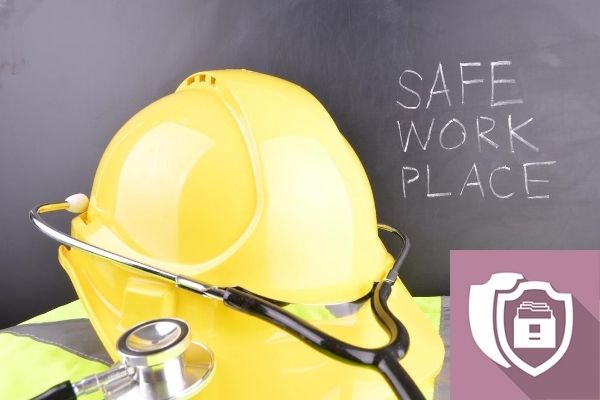
Workplace Health and Safety
£35.00/Candidate
Course Duration: 45 Min
Modules: 6
IIRSM
More Details
This course covers general Health and Safety issues that apply to a wide range of types of businesses and sectors, from office and retail environments to workshops and factories. The wide range of topics covered makes this a great course to act as an introduction to health and safety in the workplace that can then be built on with more detailed courses that cover specific hazards that employees might come into contact within specific workplaces. This makes it a useful part of the induction process.
By the end of this course the candidate will have an understanding of health and safety legislation and definitions of common terms associated with health and safety. This is followed up with some statistics outlining the most common causes of accidents in the workplace. They will also understand good practice in relation to electricity, display screen equipment and the use of safe manual handling techniques.
The course also introduces best practice associated with the control of substances hazardous to health regulations, the importance of using appropriate PPE as instructed and the most common procedures to follow in the event of a fire. The course contains specific case studies that outline the seriousness of health and safety in the workplace and potential consequences if there is a health and safety breach. Along with all this it introduces the concept of risk assessment and concludes with the actions that should be taken in the event of an emergency situation occurring.
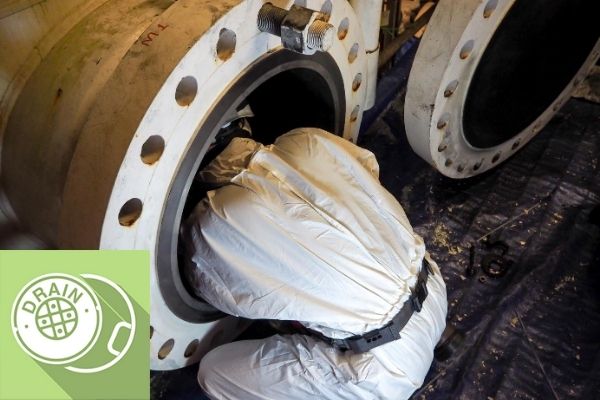
Working in Confined Spaces
£35.00/Candidate
Course Duration: 25 Min
Modules: 4
IIRSM
More Details
At the end of this course you’ll be able to demonstrate your understanding of the control measures to be followed when working in, or near to, confined spaces as detailed in a safe working procedure.
This course will cover the legislation associates with working in confined spaces. What counts as a confined space, the potential hazards, safe operating procedures, emergency procedures and rescue.
Important note: This is an awareness course only, designed for people who need to be aware of the hazards and risks of confined space working but are not required to enter a confined space. If you are required to perform any work activity in, or in the proximity of, a confined space then you will also need to have an ‘approved’ standard of practical training at the ‘appropriate’ level.
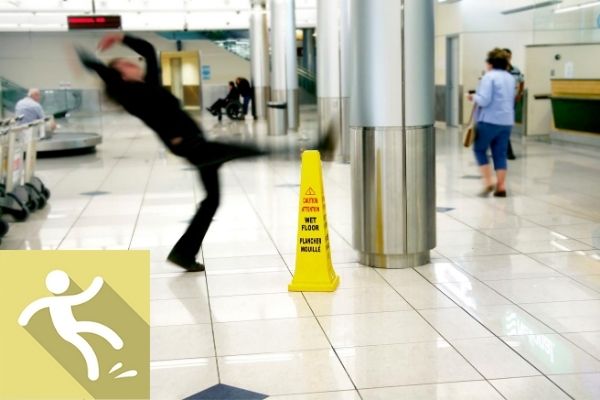
Slips, Trips and Falls
£35.00/Candidate
Course Duration: 60 Min
Modules: 4
IIRSM
More Details
Slips, trips and falls account for almost a third of non fatal injuries at work. It is a widely held belief that with just a few minor changes to working practices and attitudes this could be reduced significantly.
This course will introduce you to some of the statistics relating to slips, trips and falls and dispel some of the myths surrounding them. It also touches on the law as it relates to slips, trips and falls. It contains real examples of where things have gone wrong and some practical steps that could have been taken to prevent these incidents.
The course also covers some of the straightforward changes that can be made in most businesses to significantly reduce the risk of a slip, trip or fall incident occurring. The final module takes this to the next level and looks at it from a management perspective.
What you will learn:
- Serious Facts and the Law
- Slip Hazards: Causes and Controls
- Trip Hazards: Causes and Controls
- Management Issues
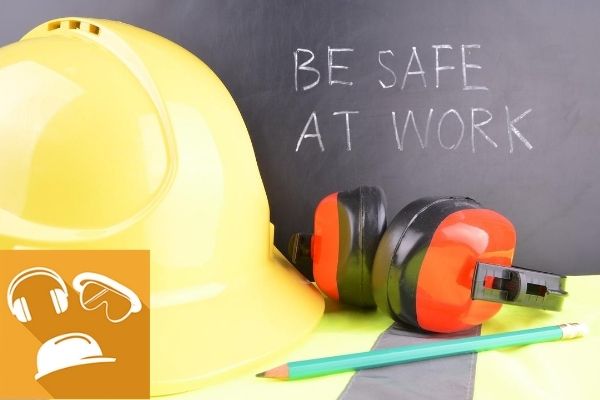
Working Safely
£65.00 / Candidate
Course Duration: 150 Min
Modules: 7
ROSPA & IIRSM
More Details
Working safely is in the interest and concern of all staff, both employers and employees. Health and safety is one of the few areas where the law places specific duties specifically on employees so a knowledge of where this applies and how to ensure that it is adhered to is vital to protect individuals and businesses.
Most workers feel that accidents are something that only happens to other people. The reality is that too many workers are coming to harm by not observing Health and Safety laws and not working to safe systems of work – the physical, mental and financial burden of these accidents can have a huge impact on themselves, their families and their colleagues.
The course covers a wide range of topics including fire safety, asbestos awareness, working at height, COSHH, PPE and electricity. It also covers methods for improving safety performance and methods of protecting the environment.
As this course covers a wide range of health and safety situations the course provides a strong basis to further build on with more training.
ROSPA and IIRSM approval means that this course meets the rigorous standards of this leading industry body.
Online training is flexible, efficient and cost effective meaning the candidate can progress through the modules at their own pace and in their own time, so they can fit the training in around their work and personal life.
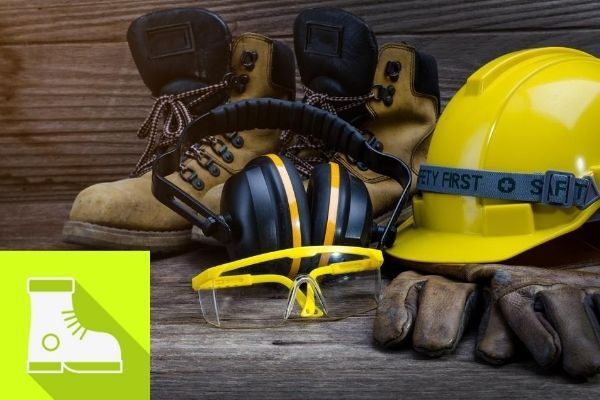
Personal Protective Equipment
£35.00/Candidate
Course Duration: 60 Min
Modules: 6
CPD
More Details
In the UK there are approximately 144 fatalities in the workplace and around 621,000 non-fatal injuries every year.
Personal Protective Equipment (PPE) plays a vital role in managing Health & Safety risks. However, historical data shows many workers suffering injury were not wearing this clothing. This course will show how wearing PPE plays a crucial role in preventing and reducing fatalities, injuries and diseases that would otherwise occur in the workplace. It includes details of a wide range of PPE options, examines the legislation and regulations that govern the responsibilities of employers, employees and suppliers, and provides a real-life case study showing the law in action.
The course will also cover risk assessment and the role it plays in the selection and use of PPE along with discussing other hazard control measures that can be implemented.
Finally, the course will move on to how to use, fit and wear PPE and understand its physical and theoretical limitations.
What you will learn:
- Introduction
- Regulations & Responsibilities
- PPE in Practice
- Risk Assessment, Selection and Use
- Types of PPE
- Maintenance and replacement

Electrical Safety
£35.00/Candidate
Course Duration: 45 Min
Modules: 5
IIRSM
More Details
Electricity is the lifeblood of modern society, it enhances our quality of life and we are becoming increasingly reliant on it to power tools and devices we use for work and entertainment. However, although electricity has many benefits it can also be a hidden killer as it can’t be seen, felt, smelled or heard until someone comes into contact with it.
This course will start by covering the many benefits electricity brings to society, as well as its key components voltage, current and resistance. It will explain the two main types of electricity, cover UK accident and death statistics, and describe a simple way of remembering the electrical hazards. It then goes on to provide basic instructions about how you could safely help someone you suspect has received an electric shock. Towards the end of the course it includes an overview of the main standards, guidance and legislation that control the use of electricity in the workplace, and finish off by looking at simple maintenance plans and portable appliance testing including who within an organisation would be best to carry out the various checks.
What you will learn:
- Overview and Benefits of Electricity
- What is Electricity?
- How Electricity Can Cause Harm
- Legislation, Standards and Key Steps
- PAT Testing Standards and Guidance
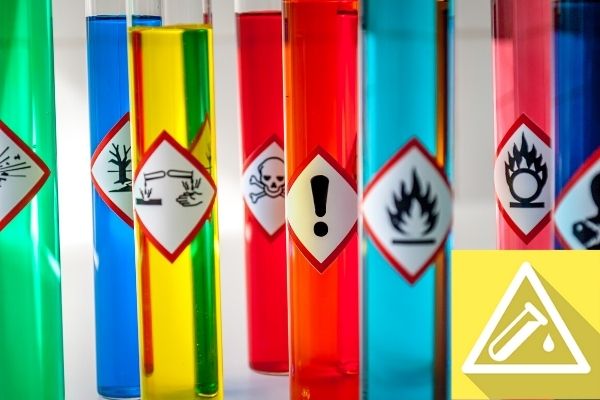
Control of Substances Hazardous to Health (COSHH)
£35.00/Candidate
Course Duration: 125 Min
Modules: 10
IIRSM
More Details
This course covers what you need to know about the Control of Substances Hazardous to Health (COSHH). It’s aimed at anyone who is exposed to Substances Hazardous to Health at work, as well as line managers with responsibility for such people. So what do we mean by ‘Substances Hazardous to Health’?
In legal terms, these are substances that are classified as “very toxic, toxic, harmful, corrosive or Irritant” under the Classification, Labelling and Packaging Regulation (CLP). This was a new regulation that came into force in January 2009 dovetailing with a set of regulations called REACH. REACH is a European Union regulation concerning the Registration, Evaluation, Authorisation and Restriction of Chemicals, which came into force on 1st June 2007. One of the main aims of REACH is to provide a high level of protection for human health and the environment from the use of chemicals.
What you will learn:
- Introducing COSHH
- Different Types of Hazard
- Different Types of Exposure
- Regulations and Approved Labelling
- Assessing COSHH Risks
- The Risk Assessment in Practice
- Exposure Control
- Staying in Control
- Training and Emergency Planning
- Course Summary
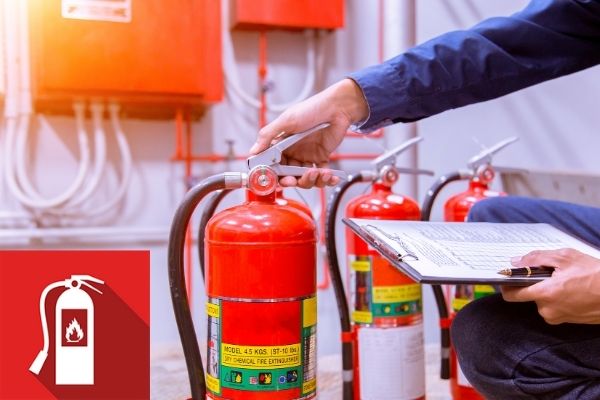
Fire Extinguisher
£25.00 / Candidate
Course Duration: 25 Min
Modules: 3
RoSPA & CPD
More Details
Current legislation, The Regulatory Reform (Fire Safety) Order 2005, applies to all workplaces regardless of the number of employees and requires employers to provide adequate training in fire awareness for all members of their staff.
Our online fire safety training courses are aimed at all employees to assist them in identifying and reducing the risk that fire presents in the workplace.
This course provides training in the use of different types of fire extinguishers and the protocol of tackling a fire.
What you will learn:
- Fire Extinguishers
- Pre-Engagement Action
- Using a Fire Extinguisher
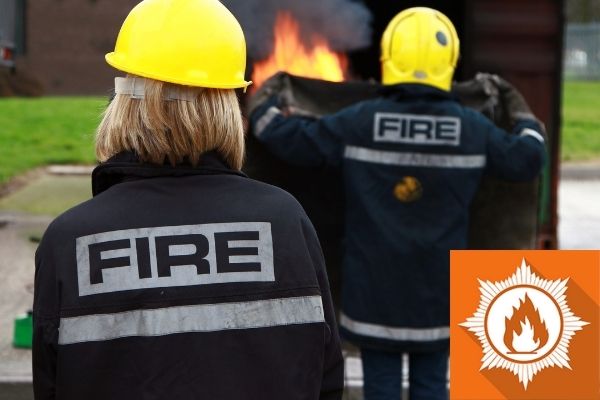
Fire Marshal
£35.00/Candidate
Course Duration: 220 Min
Modules: 16
RoSPA & CPD
More Details
Current legislation, The Regulatory Reform (Fire Safety) Order 2005, applies to all workplaces regardless of the number of employees and requires employers to provide adequate training in fire awareness for all members of their staff.
Our online fire safety training courses are aimed at all employees to assist them in identifying and reducing the risk that fire presents in the workplace.
Fire marshals (sometimes known as fire wardens) are civilians trained to assist in emergency fire evacuation procedures at businesses and other organizations. It is a legal obligation that workplaces must have a sufficient number of fire marshals to deal with fire emergencies.
This course provides extensive knowledge of fire prevention, evacuation protocol and using fire extinguishers.
Please note, this course also contains all of the content in the Basic Fire Awareness and Fire Extinguisher courses.

CDM Awareness
£35.00/Candidate
Course Duration: 40 Min
Modules: 5
IIRSM
More Details
The Construction Design and Management Regulations cover the management of health, safety and welfare when carrying out construction projects. Whatever your role in the construction industry these regulations are there to improve your health and safety.
They are intended to ensure that projects are planned and run effectively and safely right from the start.
This awareness course covers the core concepts of the regulations and details the various roles that are required for a construction project along with the key documents that need to be produced. It starts with an introduction to CDM, then covers some of the parameters that need to be checked when a project is being planned. It finishes by detailing a number of example projects that illustrate how the regulations can be applied.
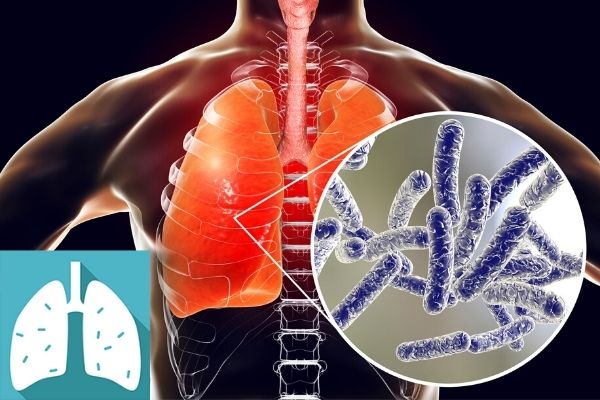
Basic Legionella Management
£65.00/Candidate
Course Duration: 75 Min
Modules: 6
RoSPA
More Details
Course Description
Current legislation set out by the Health and Safety at Work Act along with the HSE’s updated code of practice known as L8, state that companies and building owners have a legal duty to manage Legionella.
Our interactive training course is aimed at all employers and staff to assist them in identifying the danger that Legionella poses, as well as covering ways to identify and assess sources of risk from Legionella on the premises. It also gives you enough knowledge to get a Legionella control programme off the ground yourself – or make confident, informed choices when commissioning others to take this on for you.
Target Audience
This course is primarily aimed at building and facilities managers and maintenance professionals that have nominated responsibilities for water systems.
Advantages
Lack of training and awareness of Legionella have been shown to be factors in many outbreaks of legionella. Having adequate training and carrying out appropriate checks can ensure water system safety.
The course is approved by ROSPA giving you peace of mind and delegates increased confidence that the content is accurate and relevant.
Online training is flexible, efficient and cost effective meaning the candidate can progress through the modules at their own pace and in their own time, so they can fit the training in around their work and personal life.
Further Progression
There are a wide range of other health and safety courses available in the eLearning suite that are relevant to the same industries as these courses. There are also business skills courses such as Leadership Skills and Developing Teamwork which could be of value to managers and team leaders that may also have responsibilities for buildings and facilities.

Basic Fire Safety Awareness for Care Homes
£35.00 / Candidate
Course Duration: 60 Min
Modules: 5
ROSPA & IIRSM
More Details
Current legislation, The Regulatory Reform (Fire Safety) Order 2005, applies to all workplaces regardless of the number of employees and requires employers to provide adequate training in fire awareness for all members of their staff.
Our online fire safety training courses are aimed at all employees to assist them in identifying and reducing the risk that fire presents in the workplace.
This course covers the same content as the Basic Fire Safety course with additional content tailored specifically for employees that work in care homes.
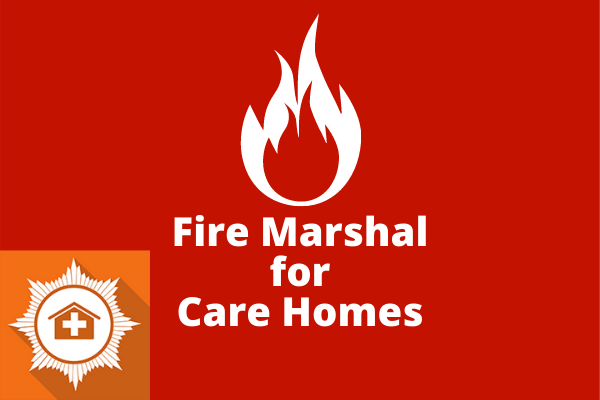
Fire Marshal for Care Homes
£35.00/Candidate
Course Duration: 60 Min
Modules: 16
RoSPA & CPD
More Details
Current legislation, The Regulatory Reform (Fire Safety) Order 2005, applies to all workplaces regardless of the number of employees and requires employers to provide adequate training in fire awareness for all members of their staff.
Our online fire safety training courses are aimed at all employees to assist them in identifying and reducing the risk that fire presents in the workplace.
This course covers the same content as the Basic Fire Safety course with additional content tailored specifically for employees that work in care homes.
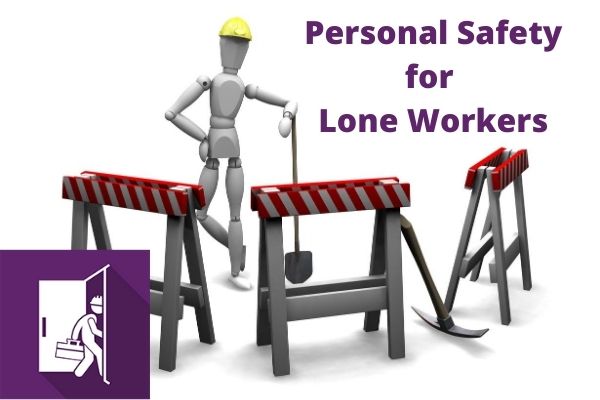
Introduction to Personal Safety for Lone Workers
£35.00/Candidate
Course Duration: 45 Min
Modules: 6
IIRSM
More Details
Course Description
Every day, thousands of people are exposed to situations where they are left alone in work premises, when visiting members of the public during their working day, or working from home.
There are many risks associated with working in isolation, without the support of colleagues. These risks can include accidents and violence.
This course acts as an introduction to personal safety for lone workers and applies to those that work alone within business premises, mobile workers and homeworkers.
It covers the legal responsibilities of both employers and employees, some of the common security precautions that can be implemented, practical steps you can take to avoid conflict in lone worker situations and other elements that can contribute to lone worker safety.
Target Audience
This course is aimed at anyone who works alone or manages people that work alone.
Advantages
IIRSM approval means that this course meets the rigorous standards of this leading industry body.

Working Within the Private Security Industry
£35.00/Candidate
Course Duration: 90 Min
Modules: 6
CPD
More Details
This course covers what you need to know about the Control of Substances Hazardous to Health (COSHH). It’s aimed at anyone who is exposed to Substances Hazardous to Health at work, as well as line managers with responsibility for such people. So what do we mean by ‘Substances Hazardous to Health’?
In legal terms, these are substances that are classified as “very toxic, toxic, harmful, corrosive or Irritant” under the Classification, Labelling and Packaging Regulation (CLP). This was a new regulation that came into force in January 2009 dovetailing with a set of regulations called REACH. REACH is a European Union regulation concerning the Registration, Evaluation, Authorisation and Restriction of Chemicals, which came into force on 1st June 2007. One of the main aims of REACH is to provide a high level of protection for human health and the environment from the use of chemicals.
What you will learn:
- Introducing COSHH
- Different Types of Hazard
- Different Types of Exposure
- Regulations and Approved Labelling
- Assessing COSHH Risks
- The Risk Assessment in Practice
- Exposure Control
- Staying in Control
- Training and Emergency Planning
- Course Summary

